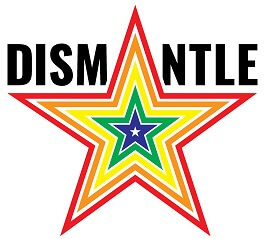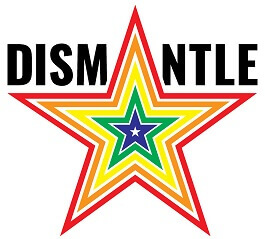We began this piece thinking that we’d do a focus on Black thinkers who have influenced our own understandings of power and culture. But as we started writing, we realized that a major emphasis in celebrating Black history, particularly in education and media, is on historical figures: those leaders, scholars, and change-makers who are heroes to many of us (think MLK or W.E.B. Dubois — or as one of us recently heard on NPR, a feature on Ida B. Wells). While we obviously appreciate and understand the role of this kind of celebration, we’d like to do something a little different than what you can find here, for example.
So to change things up a bit, we’re highlighting people who have shaped the kind of historical thinking upon which the very logic of Black History Month is grounded. While we still focus on individuals, our goal is to emphasize their contribution to the varied methods that have shaped the way historical inquiry can work as an agent of social change.
1. Stuart Hall
He’s our personal and intellectual hero, so where do we begin? Almost every one of Hall’s contributions to politics and scholarship are grounded in an understanding of the present day as informed by historical processes. But probably most significantly, he also highlighted how shared historical knowledge in itself can be part of the formation of political communities.
In one of his more famous essays, Cultural Identity and Diaspora, Hall explores how racial and ethnic identity is often bound to a sense of shared history. Since ethnic identity is always in process, Hall argues, we can understand Black cultural texts and moments as part of the material used to imagine the past. While many of us have been taught that Black History Month is about uncovering lost histories and figures, Hall’s framework recognizes that the celebration is also about representing the past for a present-day purpose: to construct a collective sense of identity and community.
His argument is against essentialism and relying on a monolithic idea of race as some sort of shared biology — a notion that is bound to colonization, and fails to recognize the historically formed bonds that create contemporary understandings of “racial” or ethnic groupings. Ultimately, he asks us to see contemporary ethnic identities as always in process, and informed by collective ways of imagining a sense of a shared past. In this way, Hall can be recognized for his role in highlighting the political contexts that brought us Black History Month in the first place.
2. Frantz Fanon (Black Skin, White Masks; The Wretched of the Earth)

Fanon is one of the few thinkers in the field of “psychology” that we actually liked to read in graduate school, and that probably has a lot to do with the fact that his thinking, while focused on individuals and their affective experience, is unapologetically structural and historical. (The scare quotes are for the blurry lines, not the discipline, which we’re sure is fine, if not part of our own academic background.) He’s also referenced several times in Hall’s essay (linked above) as laying the groundwork for why a sense of shared history is so important to the Black psyche. As Fanon argues, white supremacy psychically subjugates by erasing a positive sense of shared culture, identity or history. Understanding this process is one of the first steps to both individual and social liberation.
As noted above, following Fanon’s logic, Hall argues that it is not just the “uncovering” of a shared past that is important for undoing colonialism’s psychic violence; it’s also about contemporary linkages to the past that can function as a tool for fighting material and affective oppression.
3. Octavia E. Butler and Kindred
Octavia Butler’s early novel is one of our favorite books of all time, precisely for how she plays with questions of heritage and historical materialism. Published just a few years after the original television broadcast of Roots, her book raises similar questions about ancestry and race and how these are bound to a violent past organized through racialized slavery. Butler offers an understanding of the ambivalence of looking into the past in a place like the U.S., where the violence of one’s own family linkages can be scarring and disruptive. The book ends with the literal erasure of a part of her present-day body due to her encounter with her ancestral past, a culmination that tells us that digging into our history can be both empowering and dangerous.
4. Patricia Hill Collins
Collins is often thought of as the godmother of Black feminist thought, and one who took the concept of intersectionality to show how meanings of race, gender and class have historical roots in contemporary cultural phenomenon. In her essay, “Mammies, Matriarchs, and Other Controlling Images,” she traces contemporary figures of black femininity in the U.S. from their historical origins to the present day. She shows how racist ideology persists through subtle shifts over time, such as how the mammy figure has been “updated” from her 19th century roots and reconfigured in the modern workplace. Her focus on tracing the intersectional workings of culture through history shows us how intersectionality is not just about identity, but also about ideology.
5. Cheyney McKnight of Not Your Momma’s History
American “living history” museums and other historical re-enactment events have a notoriously fraught history of their own. On one hand, they’re an engaging way of making the past material and embodied. On the other hand, they have been especially egregious white-washers; romanticizing the progress of European settler-colonial life and often including Black and Indigenous people as either a sad oopsy or an exotic (if vague) splash of color.
Historical Interpreter Cheyney McKnight is changing the way we think about living history and what it can do. Her interpretive events, YouTube Channel and Instagram center Black experiences of U.S. history — from the 18th to the early 20th centuries — in ways that are frank, nuanced, troubling and celebratory at the same time.
Also, her clothes are gorgeous.
6. Walidah Imarisha
On her website, Walidah Imarisha describes herself thusly: “A historian at heart, reporter by (w)right, rebel by reason, Walidah Imarisha an educator, writer, public scholar and spoken word artist.”
Her work is too varied to fully encapsulate in a paragraph or two (all of it is worth checking out and all of it is engaged with connecting the past to contemporary life and power relations). What we’ll highlight here is her work on Oregon’s Black history. We love it because it’s not simply about illuminating a story that was strategically and systematically silenced for a long time (though that is, of course, important). It’s the way Imarisha did it. Through a partnership with Oregon Humanities’ Conversation Project, Imarisha facilitated a series of local conversations centered around a timeline of Black history in the state.
Oregon’s history is both extremely common (spoiler: it’s super racist!) and unique. If more people know now that the state was both explicitly designed as a “white utopia” and has been shaped by Black communities since its founding, we have, in part, Imarisha’s work to thank for it. Through this and other projects, her work demonstrates that history is a conversation, and what happens in the small coastal towns of Oregon is just as much a part of that conversation as New York City or Washington, DC.
7. Jonathan Michael Square of Fashioning the Self in Slavery and Freedom.
Jonathan Michael Square is a historian and writer whose work focuses on fashion and visual culture. As Sara and Elise have discussed before, the field of fashion history has been very slow to undo the tidy narrative invented by European historians. Square’s work not only undoes that story by shifting its central perspective, it shows how, in the absence of more traditional records, fashion in particular can be a productive mode for rethinking historical relations.
The description of his course “Fashion and Slavery” puts it succinctly: “In considering the way the enslaved understood themselves and their place in the world, historians often encounter a dearth of source material. Yet the experience of enslaved Africans and their descendants is not wholly absent from the historical record. One entry point into the experience of the enslaved is how they dressed and adorned themselves. While this could be at the direction of their enslavers, fashion was one of the few arenas in which slaves could exert a modicum of control. Clothing—even supplied clothing—was open to manipulation and interpretation.”
8. Riché Richardson
In addition to being a groundbreaking, brilliant scholar, Riché Richardson is one of our favorite former professors and one of the nicest academics in the world. Her work is beautifully interdisciplinary, and she is especially recognized for bringing geography into historical inquiry. Following the line of thought that to decolonize history, one must bring geographical inquiry to the forefront, Richardson’s work has shown us the role of the U.S. South in shaping African American culture and identity. For instance, in one of her earlier publications, Black Masculinity and the U.S. South, she examines how figures like Uncle Tom, Martin Luther King, Jr., and Master P are infused with meanings of “The South.” For more, see an extended list of her publications here.
For more on the history of Black History month, see here.
Become a Patron!Help us make more work like this by heading to our Support Us page! Then follow us on Facebook,Twitter, or Instagram.







